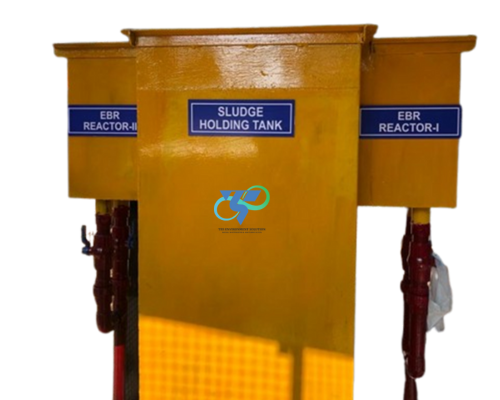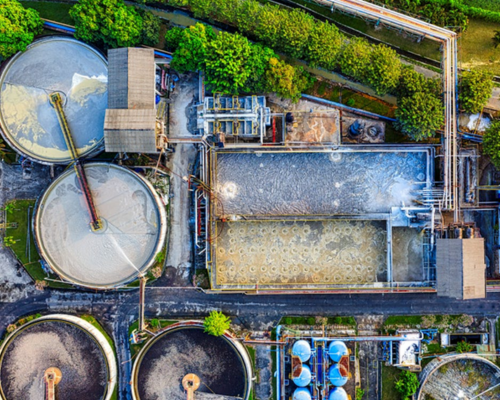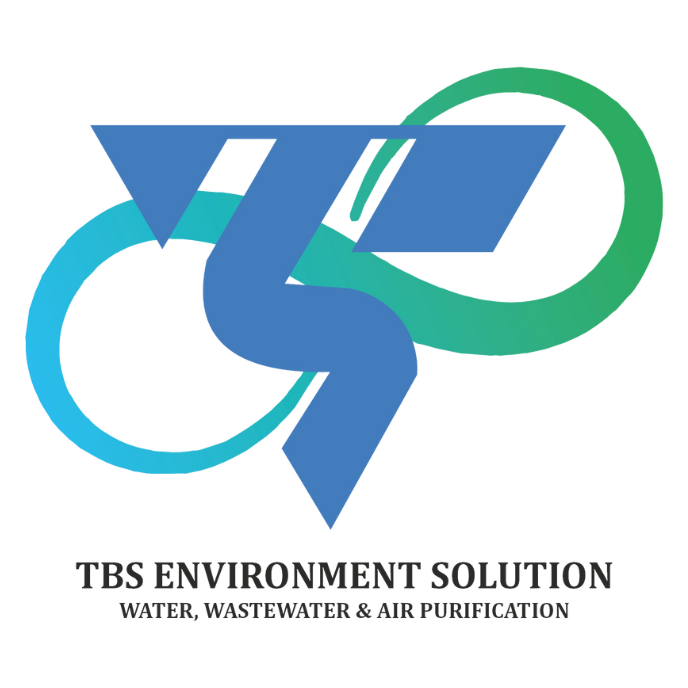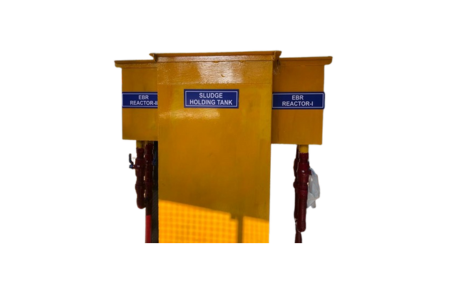Electro-Coagulation (EC)
Electro-Coagulation (EC) is an innovative wastewater treatment technology that uses electrochemical processes to remove contaminants. By applying an electric current, it destabilizes and coagulates pollutants for effective removal. This method is highly efficient and eco-friendly, making it suitable for treating industrial and municipal effluents. Below are its key benefits and advantages:
Highly Efficient Contaminant Removal
- Wide Range of Pollutants: EC removes suspended solids, heavy metals, oils, greases, dyes, pathogens, and organic contaminants effectively.
- Chemical-Free Process: Reduces the reliance on chemicals for coagulation, making it safer and environmentally friendly.
- Effective for Complex Effluents: Performs well with industrial wastewater containing a mix of contaminants.


Environmentally Friendly
- Minimal Chemical Use: Replaces conventional chemical coagulants with electro-generated ions, reducing the production of chemical sludge.
- Reduced Environmental Impact: Produces cleaner effluent with minimal secondary pollution, supporting sustainable water management.
- Carbon Neutral Potential: Can operate with renewable energy sources like solar panels.
Compact and Space-Saving Design
- Small Footprint: EC systems are compact and require less space than traditional effluent treatment plants.
- Scalable: Modular designs allow for easy expansion based on treatment requirements.
Low Sludge Generation
- Minimal Waste: The electro-coagulation process generates less sludge compared to chemical coagulation, reducing disposal costs.
- Non-Toxic Sludge: The sludge is more stable and less hazardous, making it easier to manage.
Cost-Effective Operation
- Reduced Chemical Costs: Saves on chemicals needed for coagulation and pH adjustments.
- Lower Maintenance Costs: Few moving parts and simple design result in low operational and maintenance expenses.
- Energy Efficient: Modern EC systems are optimized for energy efficiency, consuming less power.
Easy to Operate and Maintain
- Automated Systems: Many EC plants are equipped with automation for real-time monitoring and control.
- Minimal Human Intervention: Simple operation reduces the need for skilled labor.
- Self-Cleaning Electrodes: Some systems include self-cleaning features to maintain electrode efficiency.
Rapid Treatment Process
- Quick Results: The EC process destabilizes and removes contaminants quickly, making it ideal for high-throughput applications.
- Short Retention Time: Reduces the time required for treatment compared to traditional methods.
Adaptable to Various Effluent Types
- Versatile Applications: Suitable for municipal, industrial, and agricultural wastewater treatment.
- Handles Fluctuating Loads: Performs well with varying wastewater flow and contaminant concentrations.
Pathogen and Odor Reduction
- Effective Disinfection: Eliminates pathogens and bacteria through electrochemical oxidation, reducing the need for secondary disinfection.
- Odor Control: Removes odorous compounds, improving air quality around the treatment facility.
Water Reuse and Resource Recovery
- Supports Water Recycling: Produces treated water suitable for reuse in industrial processes, irrigation, or cooling towers.
- Recoverable By-Products: Facilitates recovery of valuable materials like metals from industrial wastewater.
Regulatory Compliance
- Meets Strict Standards: Ensures compliance with stringent discharge and environmental regulations.
- Future-Ready: Adaptable to evolving effluent treatment standards.
Applications of Electro-Coagulation
- Industrial Wastewater: Ideal for textiles, food processing, mining, metal plating, oil and gas, and pharmaceutical industries.
- Municipal Wastewater: Suitable for sewage treatment and improving water quality in urban areas.
- Agricultural Effluents: Effective for treating pesticide-laden runoff and animal farm waste.

